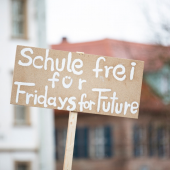
Abstract: The contribution first outlines the state of research on the relatively new Fridays for Future (FFF) movement and categorises first studies particularly from a German perspective, to provide a basis for a further differentiation in this field of research. In this context, fundamental aspects of the movement are presented. The self-concept of the German Fridays for Future movement in terms of a young protest movement with a global orientation is then compared against the educational tasks stipulated in the school legislation of the federal states (Bundesländer) with their societal-educational objectives. The contribution focuses on the question in how far the self-concept of the German branch of the FFF movement as an international protest movement and the activists’ engagement for climate protection and political participation is reflected in the educational objectives stipulated in school legislation. Statements are analysed regarding climate and environmental protection, participation and democracy and transnational references in the school legislation. A link can be found between the self-concept of the Fridays for Future movement and school legislation, but this does not resolve the conflict between the school strikes and compulsory schooling – a conflict that is intended by FFF to highlight the perceived urgency of the cause. Schools, educational administrators and educational policymakers are thereby urged to take a stance.
Continue Reading
Abstract: This article provides a case study of place-based sustainability education on the use of plastic bags in a wet market in Hong Kong. We organised two field trips and engaged 20 students in conducting both quantitative and qualitative research in the wet market to examine single-use plastic consumption. Our research has found that at least 1 million plastic bag is consumed on a daily basis in all the wet markets in the city of Hong Kong. Qualitatively, we found that some of the vendors may use plastic bags as a sale strategy and to engage with customers in conversations. In contrast to the conventional schooling that promote sustainability or plastic reduction in a very abstract sense, the place-based education we attempted aims to critically rethink the concept and knowledge of sustainability in ways that also empathize with the local tradition, and remain critical of modern corporate branding, and modernization discourse. The paper ends with a discussion on reflecting plastic use in traditional wet markets in contrast with chained supermarket shifting to more plastic pre-packages.
Continue Reading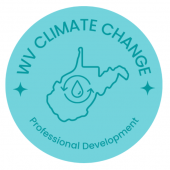
Abstract: The West Virginia Climate Change Professional Development (WVCCPD) Project was developed in 2019 as an effort to engage West Virginia K-12 teachers and informal educators in climate change professional development to encourage learning and action. Started by astronomy educators who are passionate about climate change, the project has been an experiment that has iteratively grown each year. By bringing in social science experts, communication specialists, community activists, master teachers, and learning how to best support teachers and their students through misconceptions and empowering action, we have engaged over 130 W.Va. educators. WVCCPD represents a promising case study for how educators can come together across disciplines and institutions to build an engaging climate change learning community, even in West Virginia, an area that is known for fossil fuel extraction. We hope this paper informs other teacher education practitioners.
Continue Reading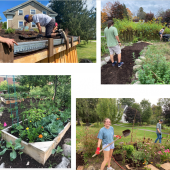
Abstract: This case-study supports the implementation and social investment in university campus community gardens as an interdisciplinary resource for academic research, extra-curricular activities, and community building. Using a permaculture design model, the St. Lawrence University community permaculture garden in Canton, New York State exists to enhance the diverse academic curriculum and varied community engagement opportunities to provide experiential and interdisciplinary learning opportunities for students, faculty, staff, and remaining stakeholders. This case-study will focus on one of St. Lawrence University’s student-led clubs, its operations, history, and challenges (e.g., participant transience). Our findings suggest that campus permaculture gardens require adequate investment, including financial and academic support. The development of a conceptual seasonal and academic community calendar provides a fundamental framework for operations and governance. The sheer number of opportunities and broad capacity of the club and the presence of physical student space brings meaningful accessibility and community engagement. Over time, the club and garden has remained resilient due to a holistic approach which keeps the bigger picture in mind. Each year the club faces a variety of challenges and obstacles, yet such experiences have provided opportunity for adaptation and evolution. Recommendations can be used to support a replicable model for other educational environments and communities in both urban and rural areas, interested in developing a permaculture garden as a resource that improves social cohesion during a time of ecological fatigue, social unrest, the COVID-19 pandemic, and climate change.
Continue Reading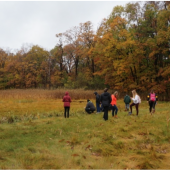
Abstract: I find it concerning, as a former elementary teacher and now a teacher educator, that not much attention is given to the preparation of new teachers on the environmental and social crisis of climate change. I have taught in two teacher preparation programs at public universities in the United States and understand the complexities, barriers, and limitations that these programs must contend with when trying to implement something new into an existing curriculum. In this paper I will describe my first attempt in navigating through the process of trying to include climate change education into a teacher preparation program. The focus of this initial effort was to understand the climate change literacy and self-efficacy towards teaching about climate change of the students in my elementary science teaching methods course.
Continue Reading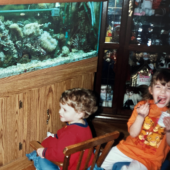
Abstract: Gaining a better understanding of human behavior change is vital to encouraging individuals to adopt an environmentally sustainable lifestyle and to the long-term goal of preserving nature. To explore how life experiences lead to the adoption of environmentally sustainable behaviors, this author turned to autoethnography. Through this reflective method, the author examines their development of environmental identity and their experiences with nature, as they relate to major concepts within the field of conservation psychology, such as ecological literacy, Theory of Planned Behavior, and connection to nature. Leading concepts concerning environmental identity in the conservation psychology literature suggest a very specific pathway for developing environmental identity, and thus pro-environmental behaviors, including experience in nature from a young age, the presence of an environmental mentor, and access to environmental literature. However, the author reveals that there may be other pathways to development of environmental identity, which include virtual environmental mentors (e.g., nature TV show hosts), environmental media (e.g., magazines, documentaries, and internet sources), and other methods of driving emotional connection to nature (e.g., sense of place). Alongside the author, the reader will have the opportunity to consider their environmental experiences and factors influencing their environmental identity, in relation to these major concepts within conservation psychology.
Continue ReadingAbstract: In her narrative, Rioux argues for the significance of teaching place-based ecocomposition to diverse and multilingual writing students in order to emphasize and demonstrate the interconnectivity between all places and spaces that we inhabit despite human-made geographic boundaries. Addressing global issues with writers who represent various places around the globe enables writing students and instructors to hone in on the international nature of climate change while emphasizing the exigence that our natural context requires. Based on primary research, the author examines how teaching place-based ecocomposition to a uniquely diverse student group affects the writing students’ recognition of the interconnectivity of all places despite geographic location. Rioux explores how diverse environmental writing students perceive the effectiveness of a place-based course as it pertains to its objectives of helping students recognize their role within our extended environments, how to become more aware of the interconnectedness that combines and connects all places, and general environmental concerns that mark the Anthropocene. Providing pedagogical insights, Rioux also shares what the students find most effective in regards to course materials, design, and overall pedagogy, as it is imperative for our collective future to understand how to engage and motivate the next generation’s thinkers, writers, and Earth-dwellers.
Continue Reading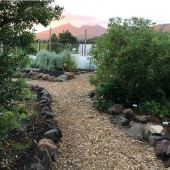
Abstract: Finding love and reciprocity in the garden during challenging times by growing community-based learning experiences.
Continue ReadingAbstract: Formal and nonformal educators help develop the environmental literacy (EL) of K-12 students, but do so in very different contexts. This paper describes educators’ views of their roles in developing student environmental literacy and barriers to that work. Educators with more advanced EL mentioned practices such as perspective taking and information evaluation. Many educators highlighted developing a connection – between students and the environment or between curriculum and students’ lives – as key to their work. The barriers identified reflect previous research, with nonformal educators also identifying access to student and peoples’ access to their sites as a major barrier.
Continue Reading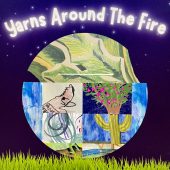
Abstract/Description: What happens when educators and professionals take a long-standing pedagogical activity, The Council of All Beings, and reshape the experience into a picture book? This paper provides a link to the story and relates the storytelling process that occurred with such an adaptation. The paper then explores the benefits of storytelling for young people and considers how co-creating stories can be an antidote to ecophobia while fostering empathy and sparking emotional engagement in the natural world. Finally, the author suggests that co-creating storytelling activities and picture book creations could be used to help children reimagine the world.
Continue Reading
Abstract: This case study follows the eight-year development of an environmental anthropology course, beginning with my own failure as a teacher to provide students an adequate way of thinking and acting amid planetary crisis. It then turns to a diagnosis of three challenges students face when thinking about global ecological futures: (1) an inability to act, (2) an inability to imagine how an individual can make a difference, and (3) an inability to conjure an adequate sense of hope. For each of these challenges, I introduced a conceptual metaphor designed to help us think anew, where a conceptual metaphor is a trope that enables thinking about one conceptual domain in terms of another. The metaphor of wayfaring helped us overcome the conviction that one must become an expert before acting. The metaphor of seed planting helped us reimagine how an individual can contribute to larger-scale change. Finally, I introduce two new conceptual metaphors for thinking about hope amid planetary crisis—weedy invasions and broken jars. By working with these tropes, I propose an alternative way of thinking about hope that does not rely on a sense of optimism. Along the way, I make two broad arguments. First, thinking through novel conceptual metaphors, what I call metaphor work, is a worthwhile technique for approaching planetary crisis with students. Second, an undergraduate seminar is an excellent place to experiment with new ways of thinking about, and living in, the Anthropocene.
Continue ReadingAbstract: Sustainability educators are in a difficult spot. They must describe our unsustainable impacts on the environment and marginalized peoples, our growing understanding of how these impacts affect future generations and other species, and our failures to make the changes necessary to approach sustainability. At the same time they must avoid pushing students over an obscure tipping point where such information causes them to retreat into despair. For despair leads to inaction, which will only hasten the deterioration of planetary health. We propose two approaches to helping students avoid despair and strengthen their motivation for pursuing sustainable changes. One approach appeals to the motivational energy of hope and the other to the power of tranquil resolve described in Stoicism. We understand these approaches to be complementary. The skills of hope work well when we are pursuing long shot goals, while those of tranquil resolve aid when the achievement of our goals is beyond our own control. While the skills of hope are more aligned with our cultural norms and thus likely easier to teach, skills associated with a tranquil resolve can more powerfully (and lastingly) address the climate challenges we face. Pedagogical examples and strategies of these skills in action are offered throughout.
Continue Reading